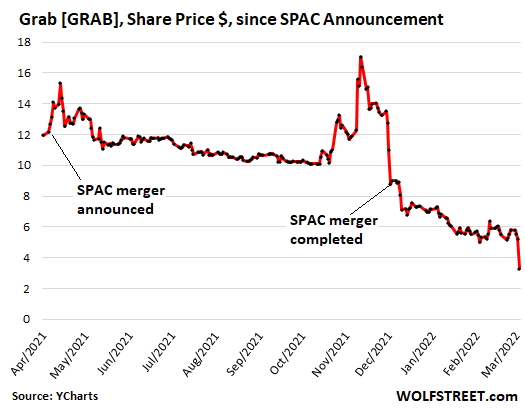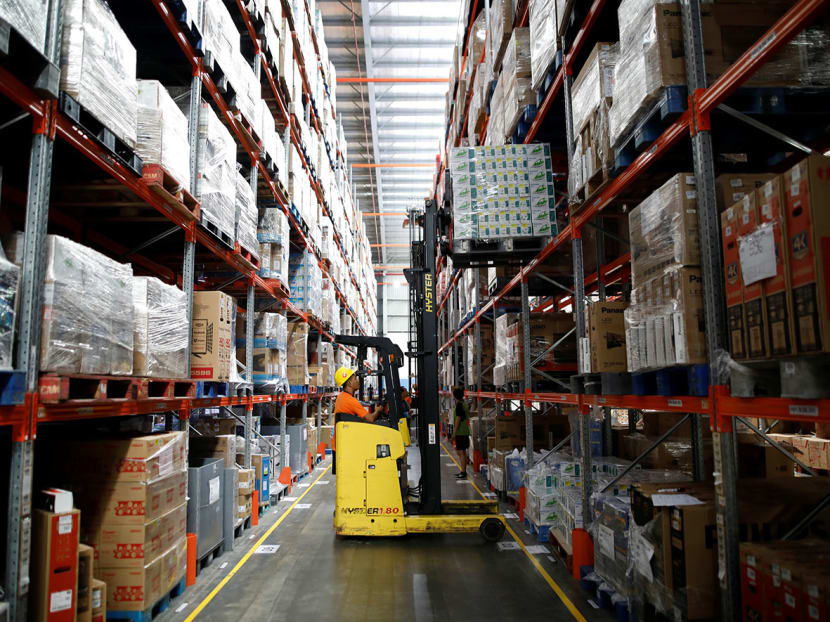
socrates469bc
-
Posts
10303 -
Joined
-
Last visited
-
Days Won
67
Content Type
Profiles
Forums
Events
News & Reviews
Posts posted by socrates469bc
-
-
do pappy serf think pappy master can resolve a issue which is more than 2k years old?????????
wahahahahahahahahahahahahahahah

-
 3
3
-
-
2 hours ago, Satki said:
Election must be near
laulan to ong lai huat to siao long and end up in 4 dragon
gxgx to kor kor to be potential pap member
wahahahahahahahahahahahahahahaha
-
 1
1
-
 1
1
-
-
-
 1
1
-
-
or else how to pay for the medicine subsidies without cutting down on the jlbs' pay???????
song bo, kumgong pappy serfs????????
wahahahahahahahahahahahaha

-
 1
1
-
-
42 minutes ago, Huat Zai said:
@socrates469bc going take a big big position?
40 minutes ago, meng.huat said:internet bubble
a stock price tells a 1000 words.
wahahahahahahahahahahahahahaha

-
 2
2
-
-
11 minutes ago, XianGe said:
Ya. Sinkieland ish lucky the other asean nation hab problem of its own... Tiongland tried to change that but it's a deep seated culture tat will take generations to change
tiongland culture is destroyed by Chairman Mao and Winnie Xi will make it permanent.
wahahahahahahahahahahahahahahahahahaha

-
 1
1
-
-
smlj benefits???????
this is what limpeh call benefits to the economy.

-
 2
2
-
-
jin kumgong.
limpeh alrdy highlighted the risks when limpeh saw their clinical trial statistics liao.
smlj vaccines can be declared effective without human trials????????
wahahahahahahahahahahahahahahahahahahahaha
-
 2
2
-
-
thats why limpeh said Trump is better for world peace.
a rational MAD peace is safer than an unstable peace.
wahahahahahahahahahahahahahahahahahahahahahaha
-
 1
1
-
-
obviously the kgk who wrote this article dont know aviation well enough.
the main reason why bkk is unable to replace changi despite the obvious geography advantage is becos of infrastructure and service issues with bkk airport managment.
if bkk airport management can get their acts together, most airlines would rather do their refueling or transit in bkk than in changi becos of costing.
wahahahahahahahahahahahahahahahaha
-
15 minutes ago, HarrisY1 said:
Rooks like kgk ah peh @socrates469bc mook out again from Imh liao whhh
Dis morleng again go Airshow carry Tomy's briefcase of documents for signing
Kgk ah peh, wat do chiu make of dis news?
jin kumgong.
limpeh show this pic to answer kgk xdd's kumgong question
wahahahahahahahahahaha

-
 1
1
-
-
On 2/19/2024 at 12:02 PM, HarrisY1 said:On 2/19/2024 at 12:05 PM, ManOfTheHour said:
After seeing @noobmaster dp, this looks ky

looks like what limpeh see on top flr of plaza nana

-
 3
3
-
 1
1
-
 1
1
-
-
-
after the basics, limpeh intro the last piece of tool for any successful trading.
if u kgks can comprehend all the finance/investment-related books limpeh intro, then gxgx, u r on ur way to be as sakti as limpeh.
even president scholars also not sakti enough to comprehend these books.
wahahahahahahahahahahahahahahahahaha

-
 1
1
-
-
2 hours ago, The_King said:
This one the most easy?
this book is the only good finance and investment book ard.
wahahahahahahahahahahahahahahahahahaha
-
 1
1
-
-
5 hours ago, HarrisY1 said:
Y chiu Blainless Dkgk alwiz agree wif dementia stricken ah peh @socrates469bc?
Chiu wanna suck his wrinkled and stale pgd izzit?
Tiagong he ish nao at the IMH palliative care unit, dats y he cum here jjww once a week nia, the other days hes bz wif his palliative care
y dun chiu visit him instead?
b4 he tong tong chiang anytime now Whhh
diam diam lah, kgk xdd.
limpeh worry u get caught in mata shu shu's vice operations, then have to...........

and then all of us have to visit u in..............

wahahahahahahahahahahahahaha
-
 6
6
-
-
On 2/16/2024 at 2:15 PM, chamfer said:
I feel it's a sibeh heavy book to read for a non finance background reader.
@socrates469bc any books more easy to digest for a noob like me.
limpeh intro u this website as a aid.
but nothing can really replaced this book
wahahahahahahahahahahahaha
-
 1
1
-
-
On 2/16/2024 at 1:58 PM, HarrisY1 said:
Our convo:
ATB: 你干嘛?
Me: 不舒服吗?
ATB: 好痒喔
Me: 再试试看啦
*mmm*
actual meaning:
ATB: hurry up
kgk xdd: 不舒服吗?
ATB: my next customer coming soon, pls hurry up!!!!
kgk xdd: 再试试看啦 (kkj tired liao)
-
 5
5
-
-
On 2/14/2024 at 7:23 PM, HarrisY1 said:On 2/14/2024 at 11:32 PM, HarrisY1 said:
overpriced nyonya food near jonker st.
so many decent nyonya food ard melaka raya just 5 minutes drive away and kgk xdd dont know where.
really kumgong enough to chop carrot head.
wahahahahahahahahahahahahahahaha
-
 3
3
-
-
On 2/12/2024 at 3:26 PM, HarrisY1 said:
Tomy say as long as not rotten can eat mai hiam dis hiam coz African kids to eat in the first place rah whhh
if food not rotten but dipped in non-atb's sai, kgk xdd also will jiak??????
wahahahahahahahahahahahaha
-
 3
3
-
-
-
1 hour ago, XianGe said:
After chop, either offshore or bring in cheaper faster better employees
just use ai, even cheaper.
wahahahahahahahahahahahahaha
-
 3
3
-
-
16 hours ago, The_King said:
Each week, TODAY’s long-running Big Read series delves into the trends and issues that matter. This week, we look at what recent layoffs by e-commerce firms mean for the online shopping industry and consumers. This is a shortened version of the full feature, which can be found here.
- Layoffs by e-commerce firms Lazada and Shopee in the last two years have led some to question whether the heyday of online shopping could be over
- Lazada had laid staff off to pre-empt future challenges such as a higher dependence on tech, and more complex marketing strategies
- Experts say, however, that the job cuts also signal an increased focus on making profits, rather than pursuing a ‘growth at all cost’ mindset
- They add that given the fast-changing nature of the industry and competition among the firms, a big player may eventually bow out
- Should that happen, then attractive discounts, low shipping costs that consumers enjoy now may be a thing of the past as competition dwindles
SINGAPORE — E-commerce firm Lazada’s surprise move to cut jobs last month not only left some affected employees in tears, but also raised the eyebrows of industry watchers here.
Some of the former employees’ concerns have since been addressed with the provision of an additional undisclosed support package following talks between Lazada and the workers' union.
But for several business analysts and industry experts whom TODAY spoke to, the Lazada move begs a bigger question: Could the heyday of e-commerce — which had experienced a surge during the Covid-19 pandemic — be over?
Prior to Lazada’s sudden layoffs, its main competitor Shopee had also conducted three rounds of layoffs in 2022, in which staff in Singapore were affected.
Experts have said that the pattern of layoffs from e-commerce firms echoes those by technology firms such as Meta, Google, Twitter (now X) and Grab, but Lazada, whose regional headquarters is in Singapore, has maintained that its situation is different.
A source close to Lazada told TODAY that these tech firms had perhaps overhired to gain market share, and retrenched when they had to focus on profits.
However, for Lazada, the layoffs are “a business transformation exercise”, said the source.
Responding to queries from TODAY, a Lazada spokesperson said the firm has been raking in healthy revenue.
“The numbers have shown that there has been no slowdown, it has been growing,” said the spokesperson.
“But in the bigger picture, it also speaks to the evolution of the tech industry as a whole, because we are looking at companies who are left behind, and then have to make drastic cuts… Or like a company like Lazada who is looking to stay ahead of the curve.”
TODAY had reached out to Shopee, the other main e-commerce player in Singapore, but it did not respond to queries.
 Ili Nadhirah Mansor/TODAY Experts have said that the pattern of layoffs from e-commerce firms echoes those by technology firms such as Meta, Google, Twitter (now X) and Grab, but Lazada, whose regional headquarters is in Singapore, has maintained that its situation is different.
Ili Nadhirah Mansor/TODAY Experts have said that the pattern of layoffs from e-commerce firms echoes those by technology firms such as Meta, Google, Twitter (now X) and Grab, but Lazada, whose regional headquarters is in Singapore, has maintained that its situation is different.
WHY IT MATTERS
Experts say that the e-commerce firms face different challenges compared to other tech firms.
While tech firms like Google, Meta and Grab have all already dominated their respective markets, for e-commerce in Singapore and the Southeast Asian region, there is no obvious leader, said Dr Ng Weiyi, Assistant Professor from the Department of Strategy and Policy at the National University of Singapore (NUS) Business School.
For instance, Google has dominated the search engine space and Meta the social media space with Instagram, WhatsApp, and Facebook. In Singapore, Grab has a predominant market share in the ride hailing space.
However, the main e-commerce players in Southeast Asia and Singapore, Lazada and Shopee, are still jostling for a dominant market share.
“Similarly, the parent companies expect Shopee and Lazada to dominate the e-commerce landscape, but the fact is that the landscape as of now is still very fragmented and saturated,” Dr Ng said.
In addition, e-commerce firms have a less-robust revenue stream, while the other tech companies have either multiple or more reliable revenue streams.
Professor Lawrence Loh, director of the Centre for Governance and Sustainability at NUS, said that for e-commerce firms, their ability to make money depends mostly on whether they generate enough demand from a “front-facing” customer, but this has become more difficult post-Covid-19.
“Coming out of the pandemic, there’s a very obvious drop in demand for e-commerce, because people are showing up in brick-and-mortar shops again,” said Prof Loh.
“The general economic environment is also not favourable, so disposable income is also less.”
Tech firms, on the other hand, have more reliable sources of revenue.
Both Meta and Google, for instance, are making megabucks from advertisements.
For Grab, it generates revenues through multiple streams, including advertisements, ride-hailing and delivery fees, and transaction fees when payments are made through its e-wallet.
THE BIG PICTURE
Experts said that the challenges that most e-commerce firms have stemmed from the need to be profitable — gone are the days where companies are willing to splash money to gain market share.
“The investment thesis underlying much of the industry — especially in Asia — that firms needed to position themselves early, lose money to acquire market share, and then make it up later with dominant positions and economies of scale, appears to be failing,” said Associate Professor Walter Theseira, an economist from the Singapore University of Social Sciences.
Thus, the focus and challenge that many e-commerce firms now face is in making profit.
“I think this is the main reason why layoffs occur,” said Assoc Prof Theseira. “No firm would need to lay off workers if nobody cared about profits… Layoffs are all about improving the economic outcomes of the firm for investors and stakeholders.”
 Reuters On top of the rising cost of living, reducing consumers’ desire to spend, the e-commerce sector has also been hit by rising supply chain and shipping costs due to disruptions.
Reuters On top of the rising cost of living, reducing consumers’ desire to spend, the e-commerce sector has also been hit by rising supply chain and shipping costs due to disruptions.
The need for profitability also comes amid a time when the e-commerce space is getting more crowded with competitors.
“The competitive arena is now more intense, beyond Lazada and Shopee, now you have new kids on the block like Temu and Shein, and they bring new value propositions into the whole game,” said Prof Loh from NUS.
“(E-commerce firms) have to adjust their growth expectations accordingly.”
Temu and Shein are online fashion brands from China.
On top of the rising cost of living that has reduced consumers’ desire to spend, the e-commerce sector has also been hit by rising supply chain and shipping costs due to disruptions.
“The cost of supply is getting high, (including) labour cost, material costs, because of inflation… this adds to the pressure on the supplier and they will pass the costs back to the consumer,” said Prof Loh.
THE BOTTOMLINE
What will these challenges to the e-commerce industry mean for consumers?
Despite signs that the e-commerce sector is beginning to generate sustainable revenues, experts are doubtful that the industry in the region will maintain its status quo in the near future.
The current state of competition in the e-commerce market in Southeast Asia will likely lead to a “lose-lose” situation for firms, said Prof Loh.
“There’s really so much (e-commerce firms) can do but to go low on prices,” he said, noting that consumers are usually not loyal to any platform and thus will choose the one that offers the most attractive deals and lowest shipping costs.
 Reuters Despite signs that the e-commerce industry is beginning to generate sustainable revenues, experts are doubtful that the industry in the region will maintain its status quo in the near future.
Reuters Despite signs that the e-commerce industry is beginning to generate sustainable revenues, experts are doubtful that the industry in the region will maintain its status quo in the near future.
Agreeing, Dr Ng from NUS said that even amid a climate where profits are the priority, firms will be reluctant to cut back on offers and discounts as they will fear losing out to their competitors.
“It's a Catch-22, If I’m (an e-commerce firm) and I skip the next 3.3 sale, for example, and (a competitor) does not, while this might aid the bottom line in the near future, it will make me lose market share in the long term. Is this a good outcome?"
A "3.3" sale refers to specific sales events that occur on March 3, but can also occur on any date which the number of the day matches that of the month. It is typically chosen by e-commerce firms to offer discounts and attract new customers.
While this is good news for consumers who may enjoy lower prices, this may not last, given the fast pace of change in the e-commerce sector.
Experts do not rule out a situation where one big e-commerce firm may bow out due to the fierce competition that still rages in the e-commerce arena here and in the region.
They pointed to a similar situation involving Grab and Uber in the 2010s. The ride-hailing firms were caught in a price battle after entering the Singapore market in 2013, offering various promotions and discounts for commuters and incentives for drivers.
However, Uber eventually decided to exit the Southeast Asian market, and sold its operations to Grab in 2018.
Should one e-commerce firm end up like Grab and become a dominant player in the industry, it is the customer that will lose out, said Dr Ng.
“The moment someone bows out, discounts stop… This is a reflection of the venture capital strategy, the moment we dominate the market, we shift gears, focus on profitability, and stop subsidising the consumers."
smlj experts, dont even understand the basics of biz or tech and still say ecom cannot make money.
the reason why ecom have to retrench is not becos cannot make money but becos they overhired on marketing and services, resulting in revenue not keeping pace with expenses.
after right-sizing and the employment of ai, do a ecom company need so many marketing and services staff?????
if limpeh so old also buy limpeh's crocodile singlets and tat sing slippers online, u think physical shop can still survive meh???????
wahahahahahahahahahahahahahaha
-
 3
3
-
kumgong until limpeh bo words.
use pigu think also know wont work.
if dont understand the culinary habits of ur customers, confirm cmi.
firstly, most malays dont take hotpot on a regular basis and secondly, taste buds different.
this one also need limpeh to point out.
wahahahahahahahahahahahahahahahahaha
-
 1
1
-
 1
1
-



























‘$1, $1! Just $1!’: A look at what happens to unsold Chinese New Year goodies
in Chit-Chat
Posted
jin low class to give pineapple tarts and mini spring rolls.
if want to give, at least give lamoist kek lapis like my ship brokers.
wahahahahahahahahahahahahaha